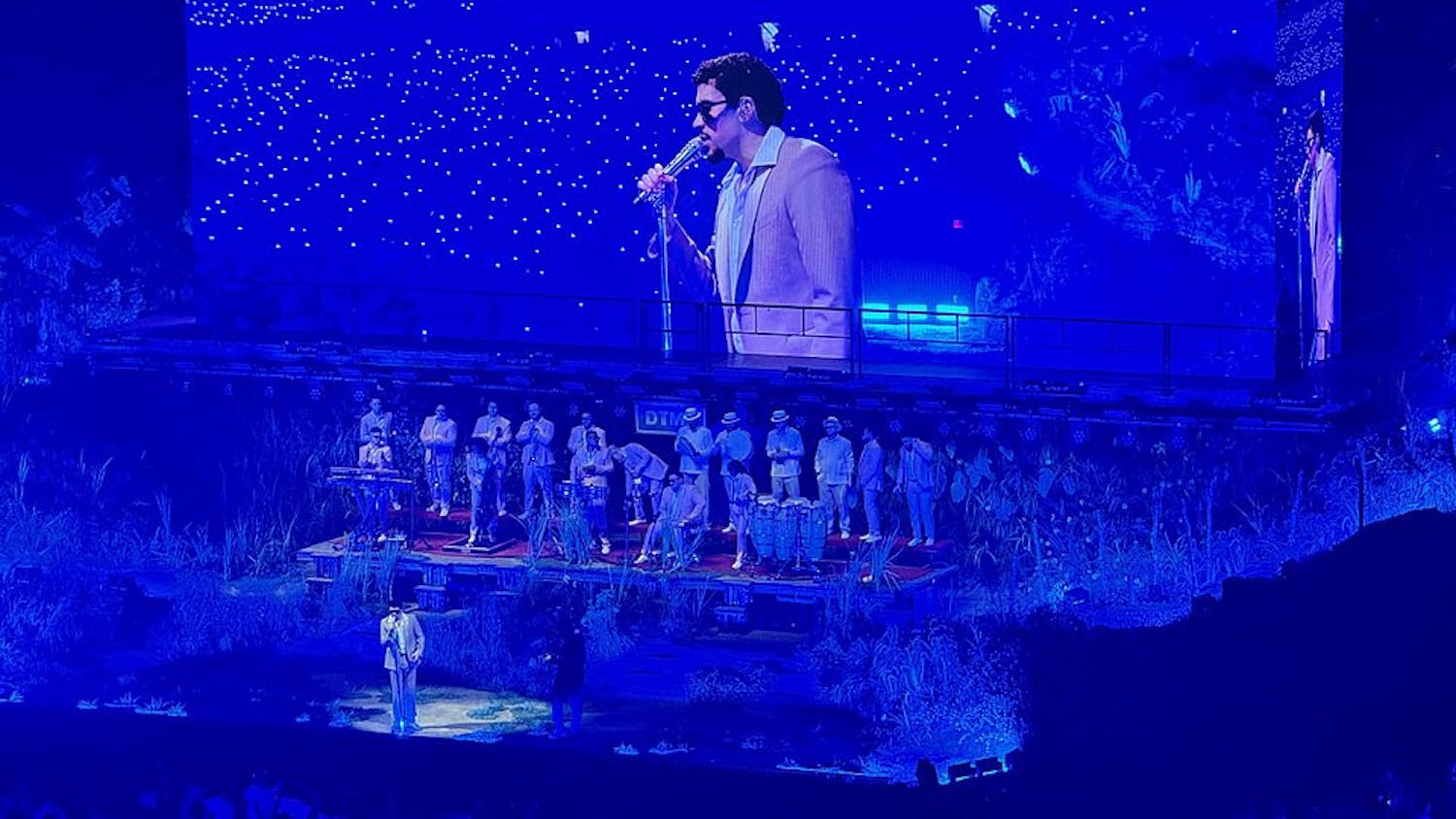It’s 9:35 a.m. as countless students speed walk down State Street, rushing to class in the hopes their professor is doing the same so they won’t be late after all.
As the morning rush causes many to dodge and weave through the leisurely walkers abound, it’s not uncommon for them to pass several people who look like they’ve been living in poverty for far too long. While there are occasional walkers who stop to engage with these folks, the majority decline their request for spare change and keep walking for fear of an uncertain encounter or the potential of an impending class tardy.
Shorty, a Street Pulse newspaper salesman who can typically be found outside of the Overture Center or Coffee and Bagels, sees these interactions unfold on a daily basis. In an attempt to understand these confrontations on a deeper level, I sat down with the man who sees it all first hand.
Shorty’s story begins in Milwaukee where he never actually got to know his parents. His mom died in a car crash while his dad chose to abandon him at a young age, simply because he didn’t want to father a child with such dark skin, or admit that Shorty had been born out of wedlock. From there, Shorty moved from Milwaukee to Madison when he was 8 years old, eventually finding a foster family to stay with until after graduating from high school.
His experiences thereafter include time in prison for selling drugs, which he was quick to acknowledge.
Shorty concluded that the choices he made earlier in life weren’t always the right ones for himself or even for the people around him. While there is no excuse for Shorty’s actions, he showed a deep sense of remorse when explaining how his past actions have created profound changes to his present. While Shorty has dealt with his fair share of adversity, he explained that the last thing he wants is to end up back in prison, and hopes to continue living as a role model for change, teaching others to learn from their challenges as well.
After chatting with Shorty, I also spoke to Sarah, a friend of mine who fits the profile of “UW’s most common student” based on the following set of criteria: Sarah pursues the most common major of Biology here at UW-Madison;being a white female, she fits the demographics physically speaking as well. To top it off, she was raised in a typical Wisconsin family who makes slightly above the average household income of all students’ families at UW. Although there’s no single student who can best represent the actions of us all, Sarah fit the bill statistically, representing a number of majorities in the pool of 43,820 total students.
Conversing with both Shorty and Sarah on separate occasions, I was interested to see how the two would respond to the same set of questions --- specifically those that revolve around core beliefs and values, allowing each to recount the moments which have defined their lives.
Proving to be opposites in a myriad of ways on the surface, they spoke of countless similarities at their core. Both Shorty and Sarah abide by the same beliefs in terms of life’s purpose — to learn from past experiences and help others do the same.
Surprisingly, both Sarah and Shorty gave similar answers when discussing which parts of their lives they took the most pride in.The 47 year old was quick to respond when asked what the defining moments of his life have been. Answering with delight that the recent renewal of his current lease for another year was one of them, only the birth of his daughter could top that, as she means the world to him. Shorty has attempted to learn from his own father’s mistakes in the hopes that he can be a source of pride for his daughter rather than pain.
Shorty was honored to be a survivor of his circumstances; Sarah felt the same, as she was proud of being a survivor through the first two years of college, successfully navigating the changes she’s experienced throughout. Both felt gratification in the strides they’ve recently made, embodying the idea that to live with purpose is to learn through your challenges along the way.
In addition to that, each interviewee expressed feelings of true happiness at this point in their lives, understanding that it has taken time and effort to get to that place. “Life’s too short to be angry or mad” all the time, but happiness is a choice we can readily make, Shorty said.
While Shorty has dealt with more obvious points of adversity in his life, Sarah’s journey is equally as meaningful, just as everyone’s experiences are.
Sarah shared that although she is now happy in her pursuit of becoming a doctor, she also worries that she could be turned away from med school or that somehow she’ll make a wrong decision that could derail her path. While Shorty aims to better the world in other ways, he’s kept awake at night with the same types of fears, ruminating on the uncertainty of what his future may hold as well.
Although both evoked a strong confidence and self belief, neither seemed to be exempt from the fear of failure and “what if’s” that we can all relate to.
The two interviewees never officially met, but despite the similarities of their inner beliefs and values, both held drastically different opinions of what the other’s life might look like.
When I asked Shorty to step into a UW student’s shoes and describe what their typical day might entail, he assumed that most students would be early risers, waking up around 6 AM and spending the whole day in class after buying a morning coffee. He also admitted that from his perspective, most students seem like “assholes”, barely acknowledging his presence at times and even making racist comments towards him with regularity.
Shorty explained that these frequent painful encounters have jaded his views of UW students, leading him to believe what students lack is a true understanding of struggle or adversity. Shorty felt that dealing with challenges builds more compassion and empathy in people, presuming that students may treat him differently depending on how they’ve experienced adversity in the past.
Sarah, on the other hand, thought that Shorty or those like him must live their lives in a constant state of poverty, probably sleeping on the streets and just barely getting by. She assumed that their days would be full of sadness and difficulty considering most people they encounter don’t bother to give them the time of day.
Although she didn’t think people like Shorty were enjoying life to the fullest, she did express empathy for their situations, taking the opinion that State Street frequenters must be doing the best they can and deserve to be acknowledged just as much as anyone else.
Neither of their assessments are entirely true, yet there’s a lot one can ponder in comparing their answers regardless, bridging the knowledge gap between how students and State Street frequenters truly live and interact.
In reality, Shorty is happy, employed, and has a place to call home. While this may not be the case for everyone on State Street, Shorty proves that happiness is not only reserved for those with enough privilege to claim it.
Sarah’s reality is one of constant schoolwork and stress, often intertwined with doubts about her future and whether or not she’s deserving of it at all. Like many college students, Sarah grew up watching her parents work hard to provide her with the kinds of opportunities she seeks at UW today. Although she expressed complete gratitude for her parent’s actions, she also admitted feeling guilty for being able to benefit from her parents’ success. Speaking with her revealed a deep love for humanity, a love she hopes to cultivate through gaining the education to do so. While she is genuine in her spirit and actions, Sarah was not exempt from the fear of failing in the process, and didn’t want to waste the opportunities she so graciously received.
In comparison with Shorty’s perceptions of students, Sarah can seem like an outlier. Shorty’s beliefs have been formed based on the experiences he’s had when encountering plenty of people who don’t bother to give him the respect he deserves. There’s no excusing the passersby who express themselves with these hurtful manners,but Shorty recognized that there are also countless students like Sarah who say “hello” when they can and are working towards a career in helping the world to be a better place. Shorty shares similar goals, and enjoys when the people who pass him engage in conversation, even if they don’t buy anything.
These interviews shed light on the fact that each human has a completely unique and worthwhile story to tell. On a global scale, we live with roughly 7.5 billion diverse perspectives. By simply taking the time to interact with just two of them, I discovered that I was not alone in my beliefs, or isolated in my fears. Instead, I was challenged to examine the categories of a black and white world, learning to embrace the color of life rather than getting stuck in the gray.
There’s a good chance the lessons you’ll take from this article won’t be the same as mine, but regardless of what they are, hopefully these insights will lead us towards greater feelings of purpose — embodying the very spirit of Sarah and Shorty’s perspective on what a good life may truly entail.






